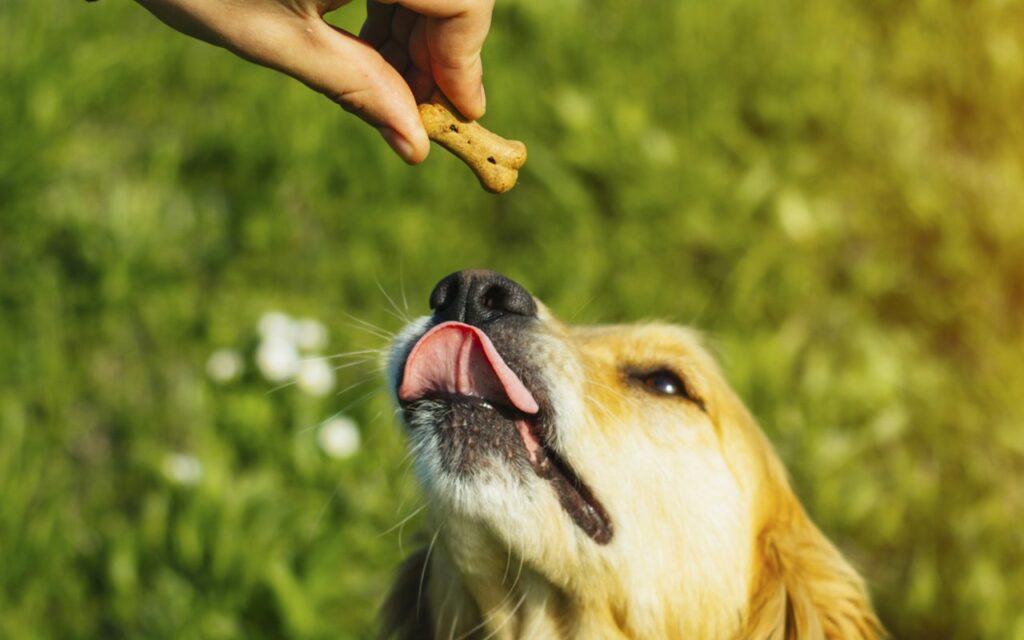Introduction
As the popularity of CBD (cannabidiol) continues to rise among humans, many pet owners are wondering if it is safe and effective for their furry companions. This comprehensive guide aims to explore the use of CBD for pets, including dogs and cats. We will discuss the potential benefits, safety considerations, proper dosing, and common uses of CBD in veterinary medicine. By understanding the science and practical aspects of CBD use in pets, pet owners can make informed decisions about incorporating CBD into their pets’ wellness routines.
I. Understanding CBD
Introduction to CBD
Provide an overview of CBD, its origin, and its therapeutic potential. Explain that CBD is a non-psychoactive compound derived from the cannabis plant and how it interacts with the endocannabinoid system in both humans and animals.
Differentiating CBD from THC
Clarify the difference between CBD and THC (tetrahydrocannabinol), emphasizing that CBD does not have intoxicating effects and does not produce a “high” in pets.
II. Potential Benefits of CBD for Pets
Pain and Inflammation Management
Discuss the analgesic and anti-inflammatory properties of CBD and how they may benefit pets with chronic pain, arthritis, or inflammation-related conditions.
Anxiety and Stress Reduction
Explore the anxiolytic effects of CBD and how it may help alleviate anxiety, fear, and stress in pets, particularly in response to situational stressors such as fireworks, thunderstorms, or separation anxiety.
Epilepsy and Seizure Management
Explain the potential anticonvulsant properties of CBD and its use in managing seizures and epilepsy in pets, highlighting the FDA-approved CBD medication for canine epilepsy.
Appetite Stimulation and Digestive Health
Discuss how CBD may promote a healthy appetite in pets and help manage digestive issues, such as nausea, vomiting, and gastrointestinal discomfort.
Other Potential Benefits
Briefly mention other potential applications of CBD in pets, such as promoting sleep, supporting immune function, and aiding in cancer management. Emphasize the need for further research in these areas.
III. Safety Considerations
Sourcing and Quality Control
Highlight the importance of sourcing CBD products from reputable manufacturers that prioritize quality, transparency, and third-party lab testing to ensure purity and potency.
THC Content and Toxicity
Explain the potential risks associated with high levels of THC in CBD products for pets and the importance of selecting THC-free or low-THC formulations to avoid toxicity.
Drug Interactions
Caution pet owners about potential drug interactions between CBD and certain medications, particularly those metabolized by the liver. Encourage consultation with a veterinarian before starting CBD to ensure its compatibility with existing treatments.
Side Effects
Discuss potential side effects of CBD in pets, such as drowsiness, dry mouth, and changes in appetite or behavior. Emphasize the importance of monitoring pets closely when introducing CBD and adjusting dosages as needed.
IV. Proper Dosing and Administration
Consultation with a Veterinarian
Highlight the importance of consulting with a veterinarian before starting CBD for pets. Veterinarians can provide guidance on proper dosing, product selection, and potential interactions based on the individual pet’s needs.
Start Low and Go Slow
Explain the principle of starting with a low CBD dosage and gradually increasing it if necessary, based on the pet’s response. Emphasize the importance of observing the pet’s behavior and adjusting dosages accordingly.
Administration Methods
Discuss various CBD administration methods for pets, including oral tinctures, treats, capsules, and topical applications. Explain the pros and cons of each method and recommend the most suitable approach for different conditions.
V. Legal Considerations
State and Local Regulations
Inform pet owners about the legal status of CBD for pets, as regulations may vary from state to state or country to country. Encourage compliance with local laws and regulations when purchasing and using CBD products.
Hemp-Derived CBD
Explain that CBD derived from industrial hemp (containing less than 0.3% THC) is legal in many jurisdictions, while CBD derived from marijuana may have stricter regulations due to higher THC content.
Conclusion
CBD holds promise as a natural therapeutic option for pets, providing potential benefits for various health conditions. However, pet owners should approach CBD use for their furry companions with caution, seeking guidance from veterinarians and ensuring product quality and safety. By staying informed about the potential benefits, safety considerations, proper dosing, and legal aspects of CBD use in pets, pet owners can make educated decisions to enhance their pets’ well-being. Remember that each pet is unique, and what works for one may not work for another, so individualized care and professional advice are essential when considering CBD for your pet’s health and wellness.

